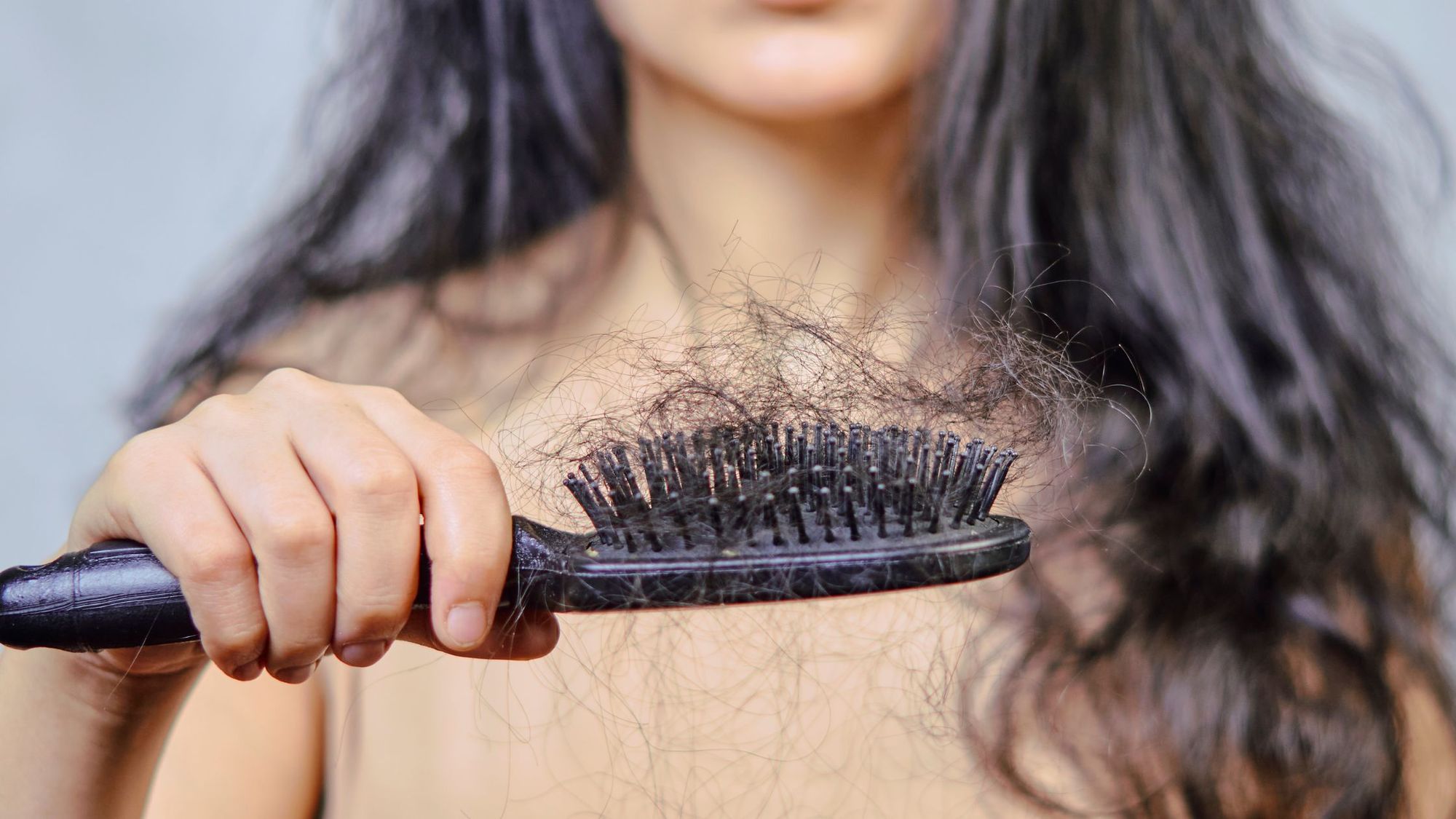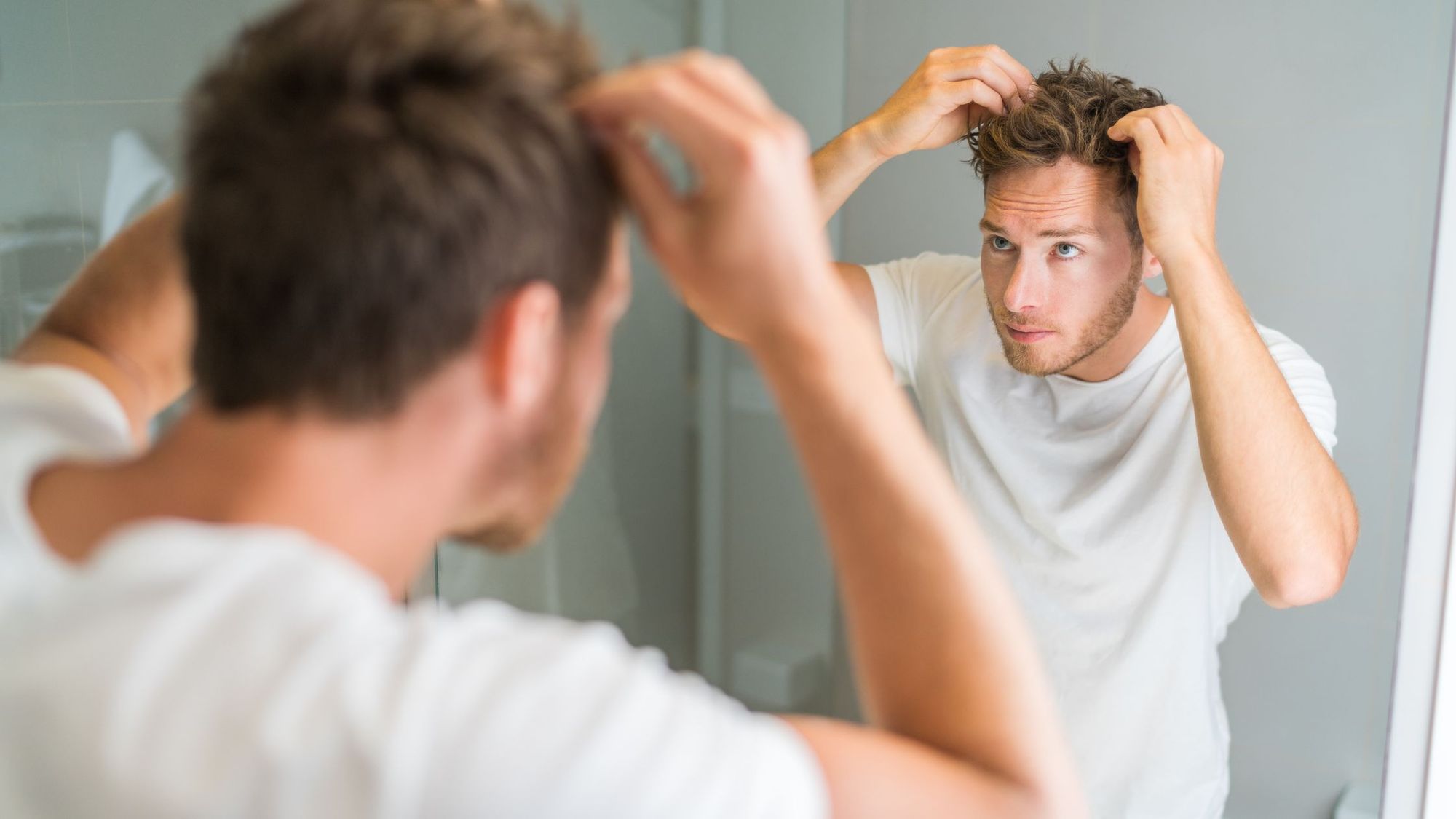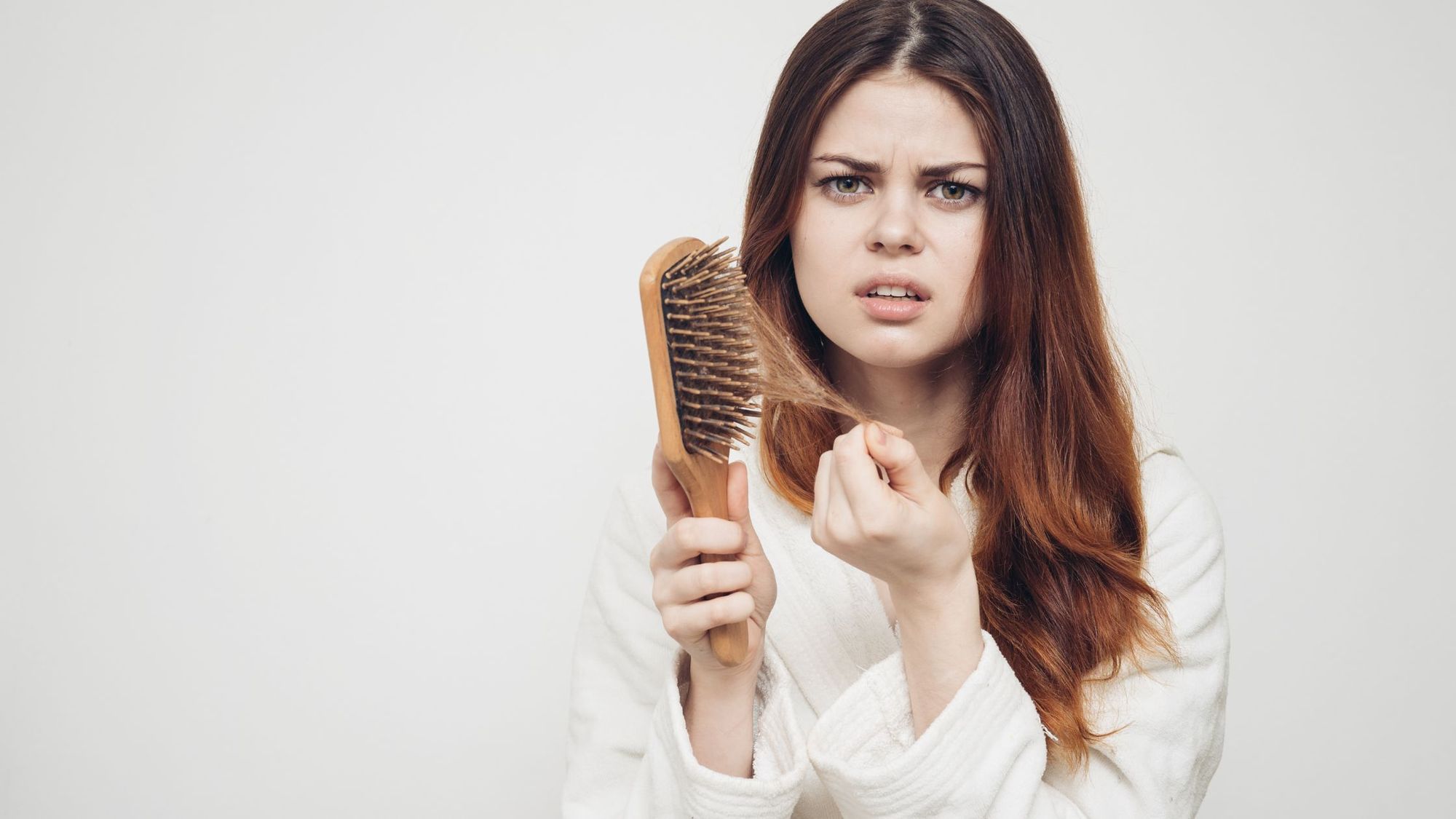
The importance of hair health is something that’s relatively easy to overlook or neglect, until you start encountering noticeable hair health problems. While many of us have dedicated routines for preserving our skin health and overall physical health, our hair rarely gets that same level of attention or care.
Similar to any part of your body, your hair needs specific health measures and support to remain healthy. Anything from failing to get enough vitamins and nutrients in your diet, to exposing your hair to high levels of heat and chemicals, can influence its health.
Unless you commit to regularly looking after your hair with specific lifestyle changes and the right nutrition, there’s a good chance you’ll encounter some hair health problems throughout your life. In this article, we’ll review some of the most common issues related to hair health, and some of the easy solutions you can consider to get your locks looking lustrous and healthy again.

Hair Health Problem 1: Dry Hair
Various factors can contribute to dry hair, including environmental conditions, such as living in a hot and humid climate, washing your hair too often, and even your physical health. Dry hair can sometimes occur as a result of various underlying conditions which influence your body’s ability to retain moisture.
People with anorexia nervosa or other eating disorders are more likely to experience dry hair as a result of malnutrition. Hypoparathyroidism can decrease the calcium levels in your blood, which influence the structure of your hair molecules.
Easy Solutions for Dry Hair
The easiest way to improve your hair health and resolve dry hair issues is by making changes to your lifestyle. For instance, it’s important to avoid shampooing or washing your hair every day, as this can rob your follicles of essential oils. Using moisturizing shampoo and conditioner products and moisturizing hair masks, as well as styling products which nourish the hair can be valuable as well.
Try washing your hair only once every 3 or 4 days, to allow your hair to thrive. Consider applying conditioners and hair oils to add softness and luster. Most importantly, look for ways to protect your hair from factors which might be robbing it of moisture.
Don’t expose your hair to excessive heat with curling irons and blow dryers. Wear a hat when you’re in a dry or hot climate, and protect your hair from chlorine and other chemicals with a bathing cap if you go swimming.
Air dry your hair when possible.
If your dry hair is caused by an underlying medical problem, the best option is to speak to your doctor. If you take the right medications and pursue a good treatment strategy, your hair health might improve once the underlying condition is under control.

Hair Health Problem 2: Hair Loss
Hair loss is a slightly more complex and more concerning hair health problem than others, but it’s still a very common problem. Some people are genetically predisposed to thin hair, receding hairlines and hair loss, and may be more likely to experience receding hairlines as they get older.
Find out your genetic hair traits with an at-home DNA test from CircleDNA.
Furthermore, hair loss can often be a sign of various other underlying issues, including malnutrition, chronic disease, and excess stress.
While it’s common to lose around 100 hairs from your head each and every day, the thickness of healthy hair often means we don’t notice the change. When you begin to lose excessive amounts of hair from your head, leading to thinner locks, this could be a sign of a greater problem.
Androgenic alopecia is the most common form of hair loss, and it’s a hereditary condition, passed down through generations. You can use your Circle DNA report to determine whether you’re more likely to experience this condition, and take additional steps to protect your healthy hair.
Other forms of hair loss can occur for various reasons. Alopecia Areata is an autoimmune condition which can contribute to hair loss, causing your immune system to attack hair follicles, leading to bald patches. Telogen Effluvium is a kind of sudden hair loss that results from a physical or emotional shock. It can happen during childbirth, menopause, and as a result of malnutrition or mineral deficiency. Some medications and illnesses can cause this issue too.
How to Combat Hair Loss
There’s no one-size-fits-all strategy for preventing hair loss. The best option for you will depend on the underlying cause of your condition. If you have a genetic predisposition to hair loss, you can use over-the-counter medications and prescription medications to help prevent androgenetic hair loss.
Substances such as finasteride and minoxidil are particularly common for protecting the hair follicles, and reducing shedding. If your hair loss is a result of an autoimmune condition, your doctor might prescribe corticosteroids and anti-inflammatory medications.
Receding hairlines and patches with less hair can be combated with Vegamour’s advanced hair growth serum to promote regrowth.
The best way to combat hair loss in most cases is to take steps to prevent it. Caring for your hair regularly with a nutrient rich and balanced diet can be a good first step. Incorporating plenty of iron and protein into your meals, and consuming foods rich in vitamin B and E can help to nourish your hair.
Being cautious about how you look after your hair can be important as well. For instance, it’s a good idea to avoid exposing your hair to chemicals or heat regularly, as well as harsh coloring products. When you’re washing your hair, gently pat it dry instead of scrubbing with a towel.
Hair Health Problem 4: Dandruff
Dandruff is another extremely common example of a hair health issue. The condition is related to a skin problem known as seborrheic dermatitis, which causes your skin to become itchy and flaky around the scalp. Currently, the condition affects approximately half of the global adult population.
Though dandruff is similar to simply having a dry scalp, it can be caused by a range of factors beyond basic skin dryness. Dandruff can happen as a result of using products on your hair that are stripping your head of their natural oils. It can also happen when fungus grows on the surface of your skin.
In some cases, dandruff is a result of poor hair care, and might happen when you don’t shampoo enough, allowing skin cells to accumulate on your head. In other instances, you might experience dandruff because you’re brushing your hair too often, and damaging the skin on your scalp.
Certain hair care products can also cause contact dermatitis and similar forms of irritation on your head, which can make dandruff worse. That’s why it’s so important to ensure you’re choosing hair care products suitable for your skin and hair type.
How to Fix Dandruff
Although dandruff is a relatively harmless condition, it can still be a frustrating and challenging hair health problem. For example, it can be uncomfortably itchy, or embarrassing. The best way to get rid of the issue is to use the right solutions on your skin. Exfoliating your scalp with a product rich in salicylic acid could be a good way to get rid of excess skin. You can also try using exfoliating brushes, specifically designed to improve your scalp health.
Dandruff shampoos and conditions are also available specifically to target the symptoms of dandruff. These substances include ingredients such as ketoconazole, zinc pyrtithione, and selenium sulfide.
It’s important to follow the instructions when using these products, as some will require you to leave the solution on your head for longer periods of time. It’s also worth remembering that different types of hair require specific kinds of care.
Depending on the thickness of your hair and the health of your scalp, you may benefit from washing your hair more or less frequently than most people. You can consider speaking to a doctor or dermatologist about options if you have a lot of flaky skin on your scalp.
Some home remedies can occasionally be helpful for dandruff too. For instance, coconut oil can help to nourish your scalp, while apple cider vinegar helps to naturally exfoliate your skin.
Overcoming Hair Health Issues
Most of us will encounter at least a couple of hair health issues throughout our lives. Experiencing hair thinning, hair loss, dandruff, dry hair, and similar problems isn’t necessarily a sign that you’re not washing or brushing your hair enough. It could indicate you’re not giving your hair the exact treatment, time or care that it needs.
Similar to any part of your body, your hair is unique to you and has its own specific health requirements often based on your genetics. You can learn more about your hair health within your CircleDNA report.
You’ll also be able to check your nutrition report to determine whether you need to consider changing your diet to keep your body and your hair healthier.
References:
- Hypoparathyroidism News: 5 Main Symptoms of Hypoparathyroidism
- AAD: Do you have hair loss or hair shedding?
https://www.aad.org/public/diseases/hair-loss/insider/shedding
- NCBI: Seborrheic Dermatitis and Dandruff: A Comprehensive Review





